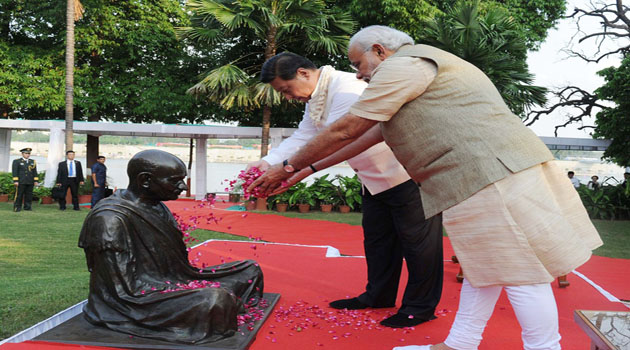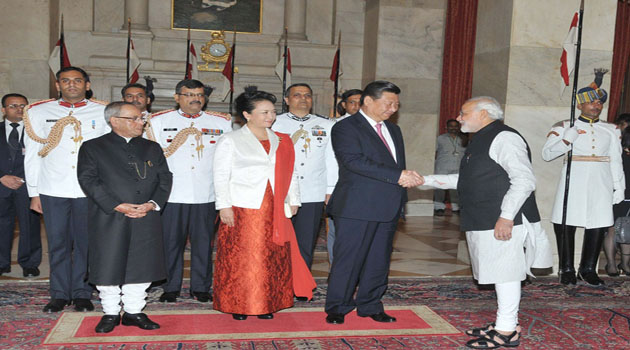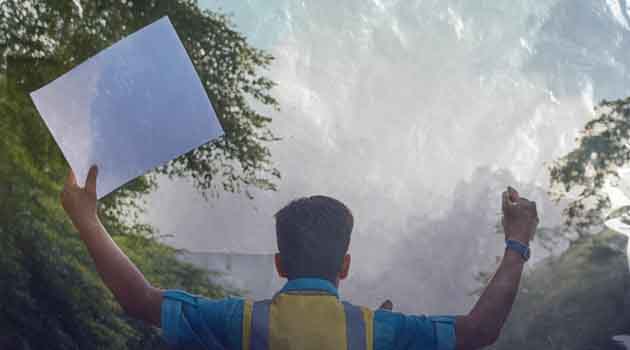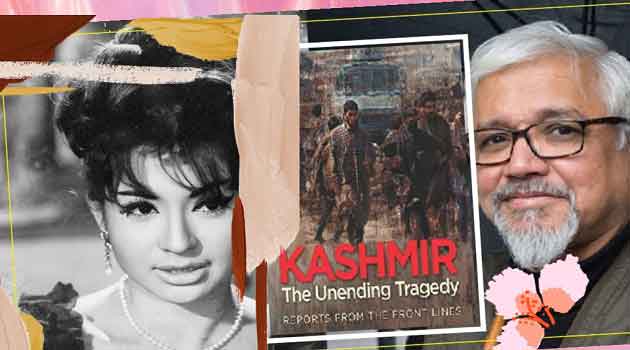Rhetorics like ‘What the next India-China war might look like’ or ‘There could be war if conflict between India, China not handled properly’, clearly point to the ongoing face-off between the two nuclear weapon countries.

In a latest, China and India seemed bumping on the tri-junction of Sikkim-India-Bhutan at Doklam Plateau, which has been raising some potential storm.
As a result, diplomacy has been put on its toughest test ever on both sides of the border to defuse the tension in a win-win manner.
The standoff presents a chicken-game like situation in this regional geo-political theatre. Added to this is the prospect of both the armies facing eye-balls to eye-balls with the world waiting eagerly: who blinks first.
Interestingly, the kind of posture and determination that have been revealed by Indian policy-makers and the Indian Army suggest that India under no circumstances is going to chicken out, allowing Chinese to have their way.
Though media on both sides are spitting venom against each other’s country, presenting clear-cut constituency on both sides, the cry of ‘teach enemy a life-time lesson’ remains a distant dream.
China’s Global Times is playing India Zee TV. Barring public rhetoric, defence forces of India are undeterred and the external-affairs cell of the Indian government is predetermined not to allow “repeat of another Tibet” on its nation seams.
Amidst this latest crisis, defence on both sides of the world’s most populous nations is building-up logistical arrangements from Indian Ocean to the ground zero.
This has led to analysts from all over the world interpreting that the present standoff is different from all past incidents between India and China, and that a war is mongering between the two.
7 Complex Points Made Simple
War or no-war, China is all set to incur loss to its International Personality among the comity of nations.
![]() First, war today cannot deliver a winner or a looser, rather only casualty. China will be castigated by world community for resorting to violence.
First, war today cannot deliver a winner or a looser, rather only casualty. China will be castigated by world community for resorting to violence.
![]() Second, regional politics like international politics is determined by geo-economics. China cannot afford to lose huge market in India that it has captured over the years.
Second, regional politics like international politics is determined by geo-economics. China cannot afford to lose huge market in India that it has captured over the years.
![]() Thirdly, war will also speak about China’s commitment to Panchsheel principles, international law, and diplomacy as a means of resolving disputes, thereby undermining its personality.
Thirdly, war will also speak about China’s commitment to Panchsheel principles, international law, and diplomacy as a means of resolving disputes, thereby undermining its personality.
![]() Fourthly, in case China blinks it is bound to lose its status and personality that it has been enjoying in unipolar Asia as the sole super power. Media shall be solely responsible for such an outcome.
Fourthly, in case China blinks it is bound to lose its status and personality that it has been enjoying in unipolar Asia as the sole super power. Media shall be solely responsible for such an outcome.
![]() Fifthly, it has already sent a strong signal against China to India’s neighbours in South Asia and they will think thrice before they think of greater and enhanced economic engagement and connectivity with China.
Fifthly, it has already sent a strong signal against China to India’s neighbours in South Asia and they will think thrice before they think of greater and enhanced economic engagement and connectivity with China.
![]() Sixthly, the confrontation has helped India towards gaining faith and confidence of Bhutan. And this incident will provide leverage to India while conducting its relations with other neighbours and would help India wean them away from China. This again will substantially undermine China’s strength among South Asian and East Asian countries.
Sixthly, the confrontation has helped India towards gaining faith and confidence of Bhutan. And this incident will provide leverage to India while conducting its relations with other neighbours and would help India wean them away from China. This again will substantially undermine China’s strength among South Asian and East Asian countries.
![]() Seventhly, it has enhanced India’s credibility in terms of honouring its agreements to its neighbours. India may not have a matching purse to that of China’s. Hence it may not be able to compete with China in South and East Asia as well as in other parts of the world.
Seventhly, it has enhanced India’s credibility in terms of honouring its agreements to its neighbours. India may not have a matching purse to that of China’s. Hence it may not be able to compete with China in South and East Asia as well as in other parts of the world.
However, India’s record is comparatively far better in terms of respecting the sovereignty and integrity of its neighbours and other countries of the world. This kind of diplomacy and defence definitely deserve salute of the citizens.












